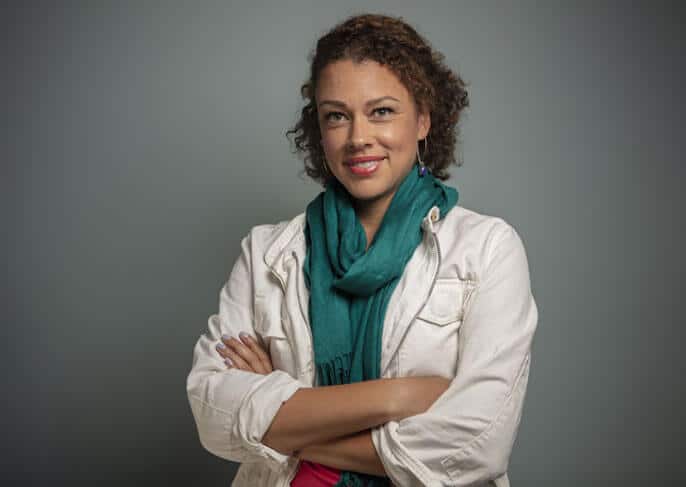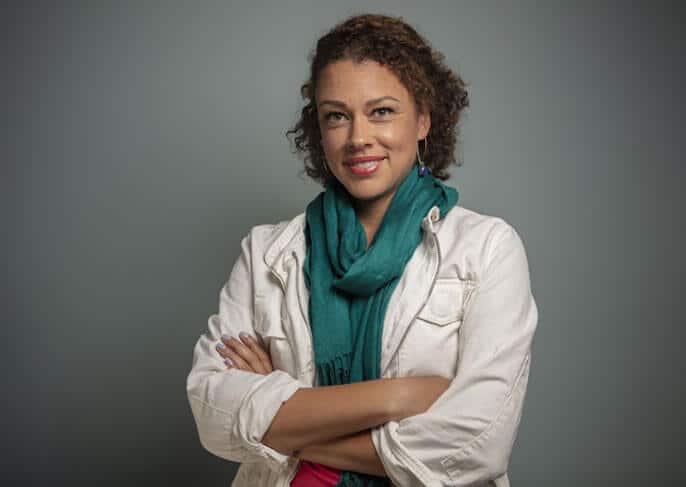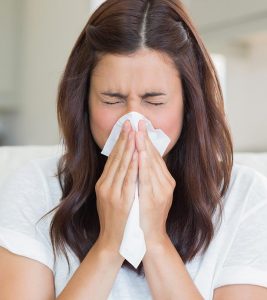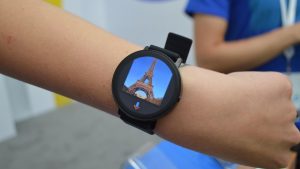Why center-course black females dread the doctor’s business office


The anxiousness of becoming black, woman and at the mercy of the U.S. health care program very first strike Tina Sacks when her mom was identified with breast most cancers. Bette Parks Sacks, then in her 50s, intuitively realized anything was improper but, like several African American females, was frightened her physician would give her the brush-off.
It was not right up until a conscientious mammography technician encouraged Parks Sacks to adhere to up with her medical doctor that her breast most cancers was caught — in time. Much less privileged are untold figures of African American females who did not aggressively advocate for their wellness for dread of becoming discounted.
In her new book “Invisible Visits: Black Center-Course Females in the American Health care System” (Oxford College Push, 2019), Sacks, an assistant professor of social welfare at UC Berkeley, tells the frequently scary human tales driving the data about delayed or denied diagnoses and/or remedy and large mortality prices amongst African People in america.
Invisible Visits is mainly dependent on in-depth interviews Sacks performed for her study “Performing Black womanhood: A qualitative study of stereotypes and the healthcare encounter,” which was printed in 2017 in the journal Critical Community Wellness.
“When you search at inequalities in health care, you see a good deal of scientific studies tying the troubles to race and poverty, but there is not a good deal about educated, insured black females who are not very poor,” Sacks states. “Yet toddler mortality prices for black females with a school diploma are larger than people for white females with just a large university training. I desired to dig further into the individual encounters driving this disparity.”
This spring, Sacks, a previous NCAA Division one tennis participant who is married to documentary filmmaker and photographer Carlos Javier Ortiz, will give talks on and off campus about the ongoing racial disparities introduced to light-weight in Invisible Visits. Berkeley News recently sat down with Sacks to question about the inspiration for her e-book, the inequities it highlights and how to tackle them.

Q: What overarching situation determined you to create the e-book?
A: There is so significantly massive-scale knowledge exhibiting racial disparities in health care, but I was far more intrigued in telling these women’s individual tales to realize their problems in health care configurations and how they deal with them. One particular of the managing themes in the e-book is that black females can’t demonstrate they are becoming discounted or denied remedy, but have this persistent nagging experience that anything is amiss and they are not becoming dealt with the way they need to. The e-book appears at why this is going on and what we can do to alter it.
Q: Why target on black center-course females?
A: Currently being a racial minority is generally equated with becoming very poor, and so it is assumed that black center-course females need to be good due to the fact they are not very poor. But they are not good. They confront significant wellness problems and variances in wellness results. My function factors to the persistence of racial discrimination throughout course, ensuing in decrease existence expectancy and larger prices of toddler mortality, and also highlights the exclusive problems females in common and black females in certain confront making an attempt to be taken severely and get their wants satisfied by their medical doctors.
Q: Just before coming to UC Berkeley, you labored for the federal Facilities for Illness Manage and Avoidance in Atlanta. How did your encounters there condition the e-book?
A: Operating along with other skilled black females who had been pressured out by the wellness program grew to become component of the impetus that led to the e-book. My colleagues and I would prominently put on our CDC personnel badges when we frequented the doctor’s business office to sign that we had been educated and experienced wellness insurance policies. We felt we experienced to guard in opposition to what may be discrimination dependent on becoming equally woman and black.
Q: What are some of the stereotypes about black females that guide to crucial results?
A: One particular is the inclination to blame black women’s wellness troubles on bodyweight. A situation that stands out to me was a female who was 35 at the time I satisfied her, who experienced endured from serious knee ache considering that she was 19 or 20. As the ache worsened, she held likely to the physician, who instructed her she just necessary to get rid of bodyweight. She would get X-rays, but not far more innovative diagnostic workups. Last but not least, she identified a physician who purchased an MRI. As soon as the benefits had been in, she was named instantly to the medical center and instructed she experienced two tumors in her knee. They experienced been there all this time. They had been in a position to get rid of the tumors and preserve her leg, but if they experienced waited any more time, they would have experienced to amputate her leg.
Q: How about racial biases in ache administration?
A: This is a actual difficulty. You even see it in pediatrics. A entire area of my e-book addresses how medical professionals and other health care personnel are qualified to handle ache dependent on racial profiling. One particular health care textbook, “Nursing: A Concept-Based Approach to Learning,” first printed in 2010, talks about how diverse racial and ethnic teams respond in a different way to acute and persistent ache and utilizes racist, anti-Semitic and Islamophobic stereotypes. Anecdotally, one particular of the users of my Ph.D. dissertation committee was a black woman medical doctor. She sent her twins at the exact same medical center the place she was an internist, but she was not permitted ache medicine in the course of labor right up until she instructed them she was an attending medical doctor at the medical center. Only then would they give her an epidural.
Q: You have blogged about tennis icon Serena Williams, who experienced a existence-threatening wellness scare soon after providing beginning in 2017. As a movie star, does her knowledge also in shape with the thesis of your e-book?
A: Completely. Black women’s perceptions of what is likely on with their very own bodies are frequently discounted, even if they are Serena Williams. In accordance to an job interview she did with Vogue, Williams was at threat for a pulmonary embolism and was going through shortness of breath soon after an crisis C-area. She acknowledged the signs and symptoms and requested for a CT scan and blood thinner, but the health care personnel did not get her severely. Blood started out pooling inside of her, which ultimately led to yet another crisis surgical procedure. The hold off could have expense her her existence.
Q: Should not we be blaming a dysfunctional health care program as an alternative of race?
A: There is no question that medical professionals are beneath actual-time pressures. They have 15 minutes to get their individuals in and out. But one particular point we know about bias is that when you are beneath stress, you are far more probably to default to stereotypes. It is a psychological shortcut.
We have a health care atmosphere in which no one has sufficient time. Medical professionals do not like it. Sufferers do not like it. No one is successful right here. But if we acknowledge that it is deeply flawed, everybody need to be at equivalent threat for the troubles it offers. Everybody justifies the exact same possibility to get the services no matter whether it is great or undesirable. And frankly, the United States totally has the ability to do much better. We just want the will.
Q: What do you advocate we do to treatment this?
A: If I could quit structural discrimination, I would get a Nobel Prize (laughs). But severely, one particular way is to be sincere about what is going on, and to teach medical professionals and health care personnel to see the individual who walks in the doorway not just as a assortment of organic indicators and genes, but to realize the social atmosphere that sales opportunities to very poor wellness in the very first area, and not to blame the individual for their wellness troubles. Obtain to large-high quality health care, totally free from discrimination, need to be the baseline in the richest place in the globe. Despite the fact that we are a prolonged way absent from that, we should aspire to that best.








